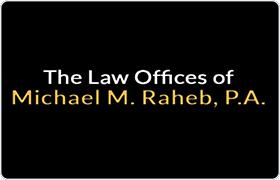Marco Island Misdemeanor Lawyer, Florida
Sponsored Law Firm
-
 x
x

Click For More Info:
-
Law Offices of Michael M. Raheb P.A.
2423 First St Fort Myers, FL 33901» view mapCriminal Defense Law Legal Problem? Call Us 24/7
At the Law Office of Michael M. Raheb, we strive to ensure each of our clients receives the individual attention and representation necessary to obtain an optimal outcome.
800-890-8981
Not enough matches for Marco Island Misdemeanor lawyer.
Below are all Marco Island Criminal lawyers.
Landon Miller
✓ VERIFIEDLandon Miller has been practicing as a criminal defense attorney in Naples and Ft Myers for 18 years. His previous cases include but not limited to mu... (more)
Jeffry S. Perlow
✓ VERIFIEDOver the past thirty-five years I have had the opportunity to represent thousands of clients in many different areas of the law. I have extensive expe... (more)
Carl Anderson Johnston
Shannon Howard Mcfee
FREE CONSULTATION
CONTACT Michael M. Raheb Fort Myers, FL
Michael M. Raheb Fort Myers, FL Practice AreasExpertise
Practice AreasExpertise


